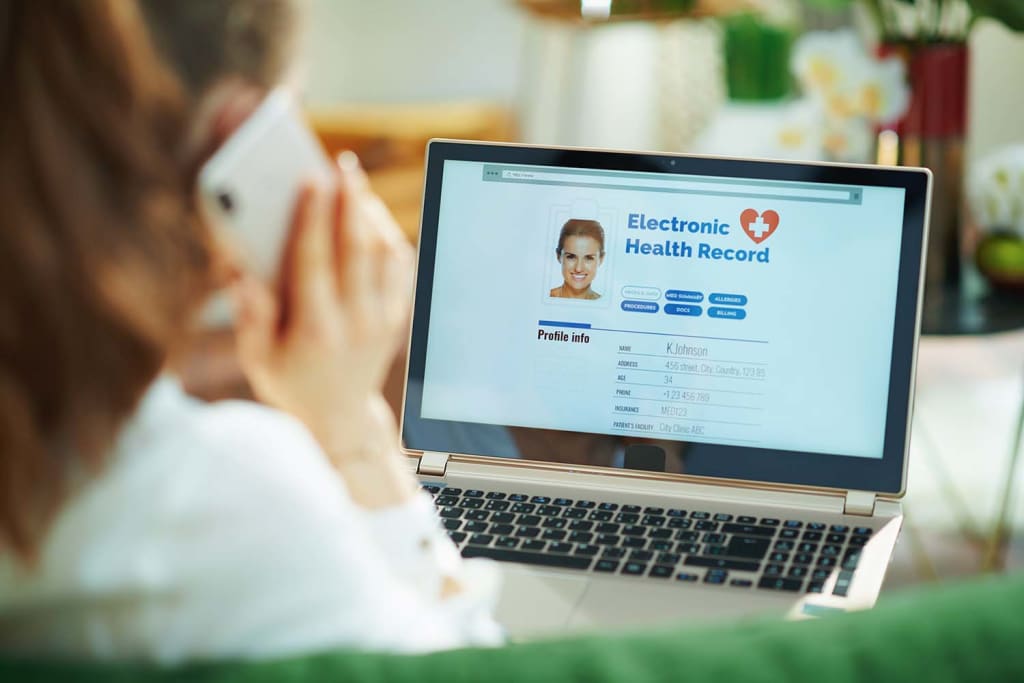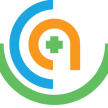How Electronic Health Record Software is Transforming Healthcare Delivery
Transformation of EHR in Healthcare Industry

Technology is quickly altering the future of every business in the current digital era, and healthcare is no different. The implementation of Electronic Health Record (EHR) software is one of the most important medical advances. Healthcare delivery has been rebuilt thanks to EHRs, which have streamlined procedures, enhanced patient care, and provided healthcare professionals with useful data insights.
Transformative impact of Electronic Health Record software on healthcare delivery.
Simplifying Patient Information Management
Traditional paper-based patient records were inefficient and prone to mistakes, which made healthcare delivery less effective. Software for electronic health records tackles these issues by centralizing and digitizing patient data. Comprehensive patient information from EHRs is kept in a safe and convenient electronic format, including medical history, allergies, prescriptions, test results, and imaging reports. This accessibility streamlines the administration of patient data by enabling healthcare professionals to obtain vital information instantly, resulting in faster and more accurate diagnoses and treatments.
Enhanced Communication and Collaboration
EHR systems make it easier for healthcare workers to collaborate and communicate easily. Medical professionals, nurses, specialists, and other members of the care team may easily access a patient's EHR to remain up to date on their condition, progress, and treatment plans. Real-time updates, encrypted communications, and shared task lists boost patient outcomes overall, enhance care coordination, and decrease medical mistakes.
Improved Patient Engagement and Empowerment
Patients may quickly access their health information with the help of electronic health record software. Patients can contact with their healthcare professionals, examine their test results, and ask for medication refills using patient portals. Patients are better able to actively participate in their treatment, make knowledgeable decisions, and effectively manage their medical problems because to the improved involvement and openness.
Data-Driven Decision Making
EHRs offer a wealth of important data, and big data and analytics are essential to the transformation of healthcare. Healthcare professionals may learn important information about population health trends, illness patterns, and treatment success by collecting and analyzing sizable datasets from EHRs. This data-driven methodology aids in the creation of evidence-based recommendations, better clinical judgment, and more successful public health initiatives.
Enhanced Patient Safety and Reduced Medical Errors
For patients, medical mistakes can have tragic repercussions. Errors resulting from unclear handwriting, missing paper records, or drug mix-ups are greatly decreased by EHR software. EHRs assist in preventing adverse medication events and enhancing patient safety with built-in safety features including drug interaction alerts and allergy warnings. Additionally, EHRs promote adherence to best practices and clinical recommendations, minimizing inconsistency in care and improving treatment outcomes.
Remote and Telehealth Capabilities
During public health emergencies and disasters, the development of hospital electronic health record software has been extremely important. EHRs give healthcare professionals the ability to deliver remote and telehealth services, ensuring that patients always have access to treatment regardless of distance. The use of telemedicine visits, virtual consultations, and remote patient monitoring has increased, encouraging prompt interventions and continuity of treatment.
Efficient Revenue Cycle Management
EHRs have enhanced the financial elements of healthcare delivery in addition to their therapeutic advantages. Software for electronic health records interfaces with coding and billing systems to automate revenue cycle management. Through this connection, billing mistakes are decreased, reimbursement procedures are expedited, and healthcare organizations' overall financial health is enhanced.
Compliance and Security
In the healthcare sector, the security and privacy of patient data are crucial. To protect patient privacy, EHR systems are made to adhere to stringent laws like the Health Insurance Portability and Accountability Act (HIPAA). Patient information is protected from unauthorized access and breaches by sophisticated encryption, access restrictions, and audit trails.
In certain regions of the world, the uptake of EHR software has been sluggish, but it is now picking up speed. We may anticipate even larger advantages for patients, providers, and the healthcare system as a whole as more and more healthcare professionals use EHRs.
Here are some particular instances of how EHR software is changing the way healthcare is provided:
- Preventing medical errors: By giving healthcare professionals access to real-time data regarding a patient's allergies, drugs, and other medical problems, EHRs can aid in the prevention of medical mistakes. By doing this, it may be possible to prevent prescribing the incorrect prescription or administering a drug to a patient who is allergic to it.
- Improving coordination of care: By enabling the sharing of patient data among healthcare workers, EHRs can promote improved care coordination. This can ensure that patients receive the right treatment at the right time and avoid needless testing or procedures.
- Personalizing care: By keeping track of a patient's medical history and preferences, EHRs can aid in personalizing care. A care strategy may be developed using this data and customized to meet the needs of each patient.
- Promoting preventive care: By informing patients of their upcoming visits for preventive care and monitoring their advancement toward those goals, EHRs can support the promotion of preventive care.
- Increasing patient satisfaction: By facilitating patient access to their medical information and communication with their doctors, EHRs can assist to raise patient satisfaction.
These are just a few instances of how Electronic Patient Record software is revolutionizing the way healthcare is provided. We may anticipate even additional advantages for patients, providers, and the healthcare system as a whole as EHR use rises.
The following difficulties must be overcome in order to fully utilize the potential of EHRs:
- Complexity: EHR systems' complexity can prevent them from being widely adopted.
- Cost: Especially for small clinics, implementing an EHR can be costly.
- Security: Because EHR data is sensitive, it's crucial to make sure it's protected.
- Interoperability: For EHR systems to share patient data, they must be able to communicate with one another.
Many groups, including the government, healthcare providers, and technological firms, are tackling these issues. We may anticipate even larger benefits from EHRs in the future when these issues are resolved.
Conclusion
Software for electronic health records has surely revolutionized healthcare delivery in ways that were previously unthinkable. EHRs have altered the whole healthcare ecosystem by streamlining patient information management, improving communication and cooperation, improving patient involvement, and enabling data-driven decision-making. Additionally, EHRs have improved patient safety, decreased medical mistakes, and improved revenue cycle management.
While there are many advantages to using EHRs, there are also certain difficulties, including the incompatibility of various EHR systems, data standards, and cybersecurity issues. The future of healthcare delivery, however, promises to be even more revolutionary and patient-centered as technology develops and healthcare professionals and governments collaborate to solve these difficulties. Software for electronic health records has ushered in a new era of medicine by enabling medical practitioners to provide better treatment and eventually enhancing the health and wellbeing of people all over the world.
Electronic Health Record Software Solutions has the potential to significantly change the way healthcare is delivered in a variety of ways. EHRs can aid in enhancing the quality of care and lowering expenses through enhancing patient care, boosting efficiency, and decreasing expenditures.
About the Creator
AssureCare LLC
AssureCare® is a population health management company, committed to connecting care for payors, providers, and pharmacies.






Comments
There are no comments for this story
Be the first to respond and start the conversation.